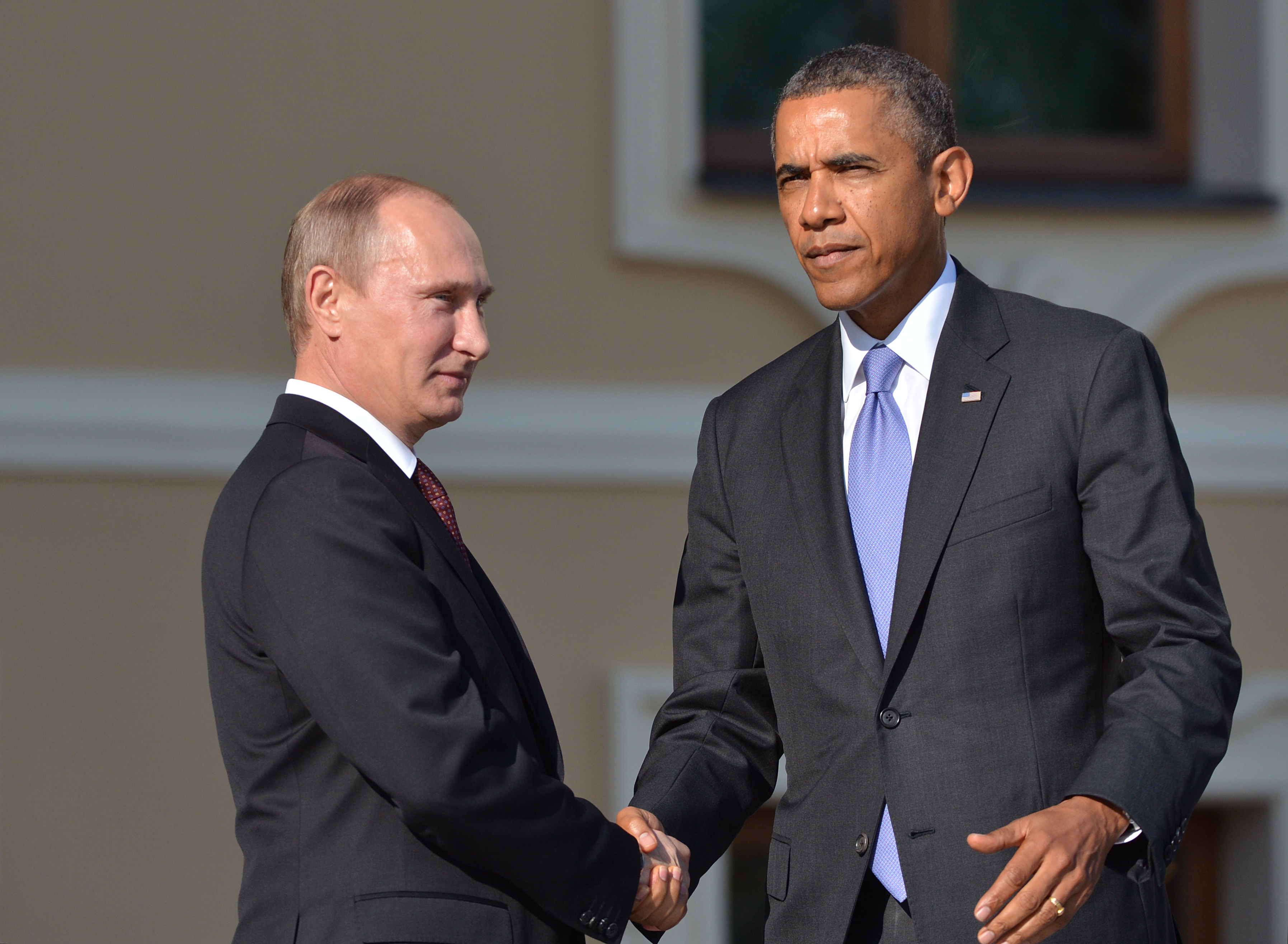America's 2018 elections are still vulnerable to Russia's meddling, after 4 years of false starts, stalemates


A free daily email with the biggest news stories of the day – and the best features from TheWeek.com
You are now subscribed
Your newsletter sign-up was successful
In early 2014, U.S. officials intercepted a classified document drafted by Russia's GRU military intelligence branch that laid out how Moscow used fake online personas and social media to spread disinformation to further its military and strategic goals, giving "the Americans their first glimpse of the power of Russia's post-Cold War playbook," The Washington Post reports. When the Russian threat came into focus in 2016, Obama officials "scrambled to draw up options to fight back," the Post says, but "in the end, big plans died of internal disagreement, a fear of making matters worse, or a misguided belief in the resilience of American society and its democratic institutions."
Late last year, President Barack Obama signed a sweeping presidential cyberthreat order, prompting U.S. spy agencies to draw up some specific operations to fight Russian disinformation, The Washington Post reports. Some key Trump security advisers took the warnings from their Obama counterparts seriously, the Post says, but a year later, "the Trump White House remains divided over whether to act," with President Trump among those who "play down the effects of Russian interference and complain that the U.S. intelligence report on the 2016 election has been weaponized by Democrats seeking to undermine Trump."
This continued indecision leaves the 2018 and 2020 elections vulnerable to Russian disinformation prowess, but the problem dates back at least 25 years, the Post reports:
The Week
Escape your echo chamber. Get the facts behind the news, plus analysis from multiple perspectives.

Sign up for The Week's Free Newsletters
From our morning news briefing to a weekly Good News Newsletter, get the best of The Week delivered directly to your inbox.
From our morning news briefing to a weekly Good News Newsletter, get the best of The Week delivered directly to your inbox.
The miscalculations and bureaucratic inertia that left the United States vulnerable to Russia's interference in the 2016 presidential election trace back to decisions made at the end of the Cold War, when senior policymakers assumed Moscow would be a partner and largely pulled the United States out of information warfare. When relations soured, officials dismissed Russia as a "third-rate regional power" that would limit its meddling to the fledgling democracies on its periphery. [The Washington Post]
You can read more about plans discarded under Obama and what's going on at the Trump White House at The Washington Post.
A free daily email with the biggest news stories of the day – and the best features from TheWeek.com
Peter has worked as a news and culture writer and editor at The Week since the site's launch in 2008. He covers politics, world affairs, religion and cultural currents. His journalism career began as a copy editor at a financial newswire and has included editorial positions at The New York Times Magazine, Facts on File, and Oregon State University.
-
 6 of the world’s most accessible destinations
6 of the world’s most accessible destinationsThe Week Recommends Experience all of Berlin, Singapore and Sydney
-
 How the FCC’s ‘equal time’ rule works
How the FCC’s ‘equal time’ rule worksIn the Spotlight The law is at the heart of the Colbert-CBS conflict
-
 What is the endgame in the DHS shutdown?
What is the endgame in the DHS shutdown?Today’s Big Question Democrats want to rein in ICE’s immigration crackdown
-
 Witkoff and Kushner tackle Ukraine, Iran in Geneva
Witkoff and Kushner tackle Ukraine, Iran in GenevaSpeed Read Steve Witkoff and Jared Kushner held negotiations aimed at securing a nuclear deal with Iran and an end to Russia’s war in Ukraine
-
 Pentagon spokesperson forced out as DHS’s resigns
Pentagon spokesperson forced out as DHS’s resignsSpeed Read Senior military adviser Col. David Butler was fired by Pete Hegseth and Homeland Security spokesperson Tricia McLaughlin is resigning
-
 Judge orders Washington slavery exhibit restored
Judge orders Washington slavery exhibit restoredSpeed Read The Trump administration took down displays about slavery at the President’s House Site in Philadelphia
-
 Hyatt chair joins growing list of Epstein files losers
Hyatt chair joins growing list of Epstein files losersSpeed Read Thomas Pritzker stepped down as executive chair of the Hyatt Hotels Corporation over his ties with Jeffrey Epstein and Ghislaine Maxwell
-
 Judge blocks Hegseth from punishing Kelly over video
Judge blocks Hegseth from punishing Kelly over videoSpeed Read Defense Secretary Pete Hegseth pushed for the senator to be demoted over a video in which he reminds military officials they should refuse illegal orders
-
 Trump’s EPA kills legal basis for federal climate policy
Trump’s EPA kills legal basis for federal climate policySpeed Read The government’s authority to regulate several planet-warming pollutants has been repealed
-
 House votes to end Trump’s Canada tariffs
House votes to end Trump’s Canada tariffsSpeed Read Six Republicans joined with Democrats to repeal the president’s tariffs
-
 Bondi, Democrats clash over Epstein in hearing
Bondi, Democrats clash over Epstein in hearingSpeed Read Attorney General Pam Bondi ignored survivors of convicted sex offender Jeffrey Epstein and demanded that Democrats apologize to Trump
